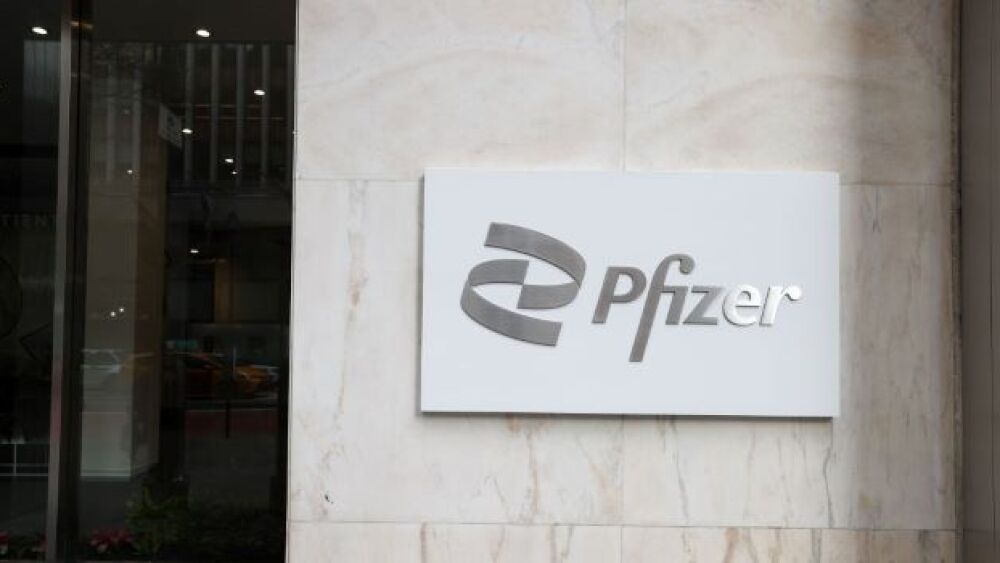Pfizer has made a deal with the small Locust Valley, New York-based company to manufacture and market the drug.
Tayfun Coskun/Anadolu Agency via Getty Images
In February 2021, Pfizer reported that it was going to stop marketing a drug for a rare type of glaucoma called infantile aphakic glaucoma. It expected to discontinue the drug on May 1. Pfizer was the only company manufacturing Phospholine Iodide drops, and for children with this rare form of glaucoma, which is a disease of the eye that causes increased intraocular pressure that can lead to blindness, the only other alternative was surgery.
Aphakic glaucoma is a common complication of surgery for congenital cataracts. Diagnosis is typically based on increased intraocular pressure and optic nerve head cupping, because children often can’t perform a visual field exam. The prevalence of glaucoma after pediatric cataract surgery is, according to the American Academy of Ophthalmology, often as high as 41%.
At the time, Pfizer stated, “We regret to inform you that after careful consideration Pfizer has made the decision to discontinue Phospholine Iodide. The manufacturing of Phospholine Iodide is complex and requires a series of external partners. Over the years, the P.I. supply chain has become increasingly unstable…. Use of P.I. has declined over the years, and based on recent prescription data, we estimate that the number of patients using the medicine is approximately 100 in the U.S.”
Now, Pfizer has made a deal with a small Locust Valley, New York-based company, Fera Pharmaceuticals, to manufacture and market the drug. The drug was originally approved in 1960. In July, the U.S. Food and Drug Administration (FDA) granted an extended shelf life for PI from 24 months to 36 months. The drug currently runs around $100 for 5 milliliters. Neither Pfizer nor Fera have released any financial terms, which has some concerned the price will go up. Pfizer plans to continuing consulting for Fera.
David Walton, an ophthalmologist at Massachusetts General hospital, told CBS Boston in May that the drops are “uniquely successful for these patients who have this special kind of glaucoma…. Pfizer has not been very helpful, frankly. Pfizer could do much, much more to be responsible before just checking out and saying we are not going to provide it.”
Pfizer, in its original statement, noted, “P.I. is no longer routinely used in general glaucoma care, but a limited number of ophthalmologists continue to use it for select patients as an add-on therapy.”
Alternative treatments include prostaglandins, beta-blockers, cholinergics, alpha adrenergic inhibitors, carbonic anhydrase inhibitors, Rho kinase inhibitors, nitric oxides, as well as laser treatment and surgery.
Fera has not made an announcement about the deal or its plans. It was founded and run by former Sandoz U.S. chief executive officer Frank DellaFera. It is a specialty pharma company currently focusing on the eye care arena, and specializes in underserved therapeutic categories.
Fera is a privately held company and states that its goal “is to realize opportunities via acquisitions, in-licensing, developing and marketing abbreviated new drug applications (ANDAs), new drug applications (NDAs) and 505(b)(2) NDA products.”
On August 7, Fera announced that it was launching a 4mg tablets of dexamethasone in blister packs. It was already marketing a 100-count bottle package size.
Featured Jobs on BioSpace





